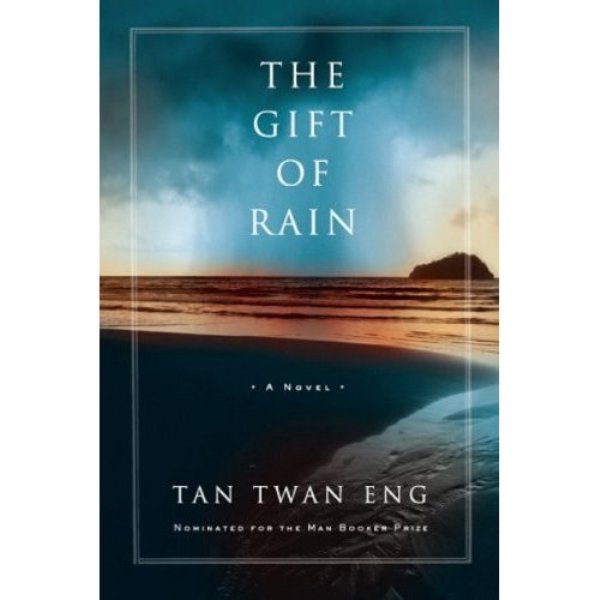The Gift of Rain by Tan Twan Eng (Weinsten Books)
Philip Hutton, half Chinese, half British, is caught between two powerful cultures and two dynamic families while feeling as though he belongs to neither. Told by a fortuneteller that he "was born with the gift of rain," the element that exists in the space between sky and earth and carries with it both life and destruction, he knows that is his own natural state--caught in the middle without a place that is truly welcoming--until a Japanese stranger enters his life.
Endo-san is a master of the martial art of aikijutsu, and Philip becomes his student. The harmony and balance of the practice, with its discipline over both body and mind, begins to provide a bridge between the divergent halves of Philip's life,while the friendship and guidance of Endo-san give him the attention that he has never known that he has missed. Slowly the resolution between the mental and the physical that he has learned in aikjutsu begins to permeate other parts of Philip's life, and the disparate elements of his mingled heritage start to cohere for him. Then the war begins, the Japanese invade Malaysia, the British abandon the country, and the world as Philip knows it falls into pieces. With the realization that his family is endangered and that his closest friend is an integral part of the invading forces, Philip begins to make choices that brand him as a traitor, lead to the death of people he loves, and haunt him for the rest of his life.
If it simply offered a passport to a time that has disappeared and a glimpse of the horror and the heroism that are spawned by war, The Gift of Rain does this so well that it would still be an unforgettable piece of fiction. Yet that is only part of what this book does. The Malaysian island of Penang, a piece of the world that both Philip's British and Chinese families are rooted to, is given a central place in this novel and is described in such powerful, evocative detail that it claims the heart of the reader as completely as it does Philip's. From the mouthwatering array of food on its streets, to the amazing diversity of its neighborhoods, to the magnificence of its prewar houses, to the sound of rain dripping from its trees, it is generously and wonderfully given form throughout the book.
So are the complexities of love in its many guises, the mystery of looking at someone never seen before with complete recognition, the question of past lives, and the torment of free will with its attendant curse of choice. Memory and loss, age and acceptance, duty and longing, these threads in the fabric of Philip Hutton's life are examined with such intelligence and grace that they transform this novel without ever threatening to overwhelm its story. This is the mark of a writer to watch; this is The Gift of Rain.

